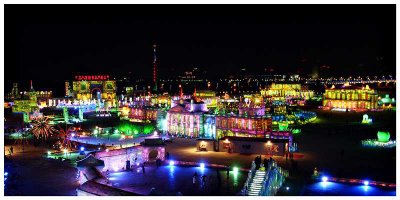More busy days with strange goings on and infuriating meetings abundantly fruitless.
Tuesday evening was the second meeting of the Beijing books and movies club which had another decent turn-out. A couple of students from the Chinese Academy of Film came along which was a great chance to find out some interesting directors to hunt down.
I was also given a superb book called 'Who got Einstein's office?'. Einstein was the first resident professor in the Institute for Advanced Studies in Princeton. The IAS was set up in the 30s from a hefty donation as a centre where the greatest minds in the world could get away from the hustle and bustle of everyday life with no pressure to teach, to produce papers, to be bombarded with administration but to concentrate on the most abstract problems of mathematics and physics that anyone has ever pondered. It's been home to 12 Nobel Prize winners and many Fields medal winners (the mathematics equivalent of the Nobel Prize).
The institute is set in a leafy background away from any big city with its distractions, noise and traffic and consequently some incredible discoveries have come out of this idyll. Currently the ruler of the roost is Ed Witten, probably the most brilliant mind in the scientific world today. He's slightly unusual as a theoretical physicist as he has also made huge contributions in areas of abstract mathematics and won the Fields medal in '93.
The book is a great look at the history of the department and the amazing, bizarre minds who have changed the world of the abstract and the concrete there over the years. Though he didn't make the discovery at the institute, Kurt Godel who worked there at the same time as Einstein, changed the way mathematics is viewed as a consistent enclosed system of logic by proving that there were problems that you could pose but which are unprovable. Not just very hard but logical impossible to prove. This may sound trivial but it rocked the established viewpoint of mathematical reasoning as a subject that with enough work could prove anything.
Anyway, for anyone interested in some of the greatest minds of the last hundred years, this is a wonderful book.
(While I'm on the subject of great minds, I came across Joe Polchinski's page on Wikipedia. Anyone from Tasi 2005 will know why this is particularly amusing, apologies to those who weren't.)
Since the gathering on Tuesday, people who were not there seem to have got the wrong end of the stick and think that we've formed some sort of political discussion group and are currently threatening to report us to the authorities. Though a bit of a shock at first we're not worried because having spoken to people who know about these things, we know that we're not in the wrong. An interesting insight into the paranoia of group gatherings however and something that we're going to keep a good eye on. I shall attempt not to get arrested in my time out here, though with Mr B coming out in a few days, that may be easier said than done.
I had planned to learn another 20 Chinese characters yesterday but instead was forced to sit through a three hour meeting in Chinese. This was the yearly report by all postdocs on progress and future plans and perhaps the biggest waste of time I've ever witnessed. First year postdocs got five minutes to explain their proposals to a group of thirty or so scientists from a diverse range of fields from biophysics and crystallography to quantum groups and cosmology. Second year postdocs had ten minutes to sum up the last year's work. Completely infuriating and I'm going to do my best to get out of such future things as much as possible without insulting the high and mighty.
I bit of a disappointment for this weekend as I was hoping to travel the 3000km round trip by train to Harbin to go and see the ice festival which is held there annually. Unfortunately because it's coming up to the Spring festival train tickets are in short supply and the two hour queue in -5 didn't appeal. I'll sort myself out for next year. However, to brighten up this post, here are some photos of what I would have seen!

As far as I know it's the largest ice and snow festival in the world with lifesize replicas of many of the great buildings and sculptures of the world. Garish in the extreme but it ought to be an amazing sight. Next year, next year.
Thursday, January 19, 2006
Subscribe to:
Post Comments (Atom)
2 comments:
When last year I was at the Institute attending PiTP, we're told that the institute actually was originally planned as a school for teachers. As far as I know, it became what it is only later, because of Einstein and all the others founding fathers of modern physics.
Speaking of the isolation, either one studies there or one studies. It's one of the most isolated, self-contained physics institute I've ever been. Probably Ecole Polythechnique (pardon the spelling) is either more isolated but at least it's not only physics.
The first plans were for a medical research centre. The story of how it turned into what it is, is a long but interesting one and I really advise reading the book. Einstein was the first professor enlisted by the institute so I think that since then it has always maintained a strict policy of research with little teaching.
When you were there did you enjoy the isolation or was it too much? Did you find it conducive to producing good work?
Post a Comment